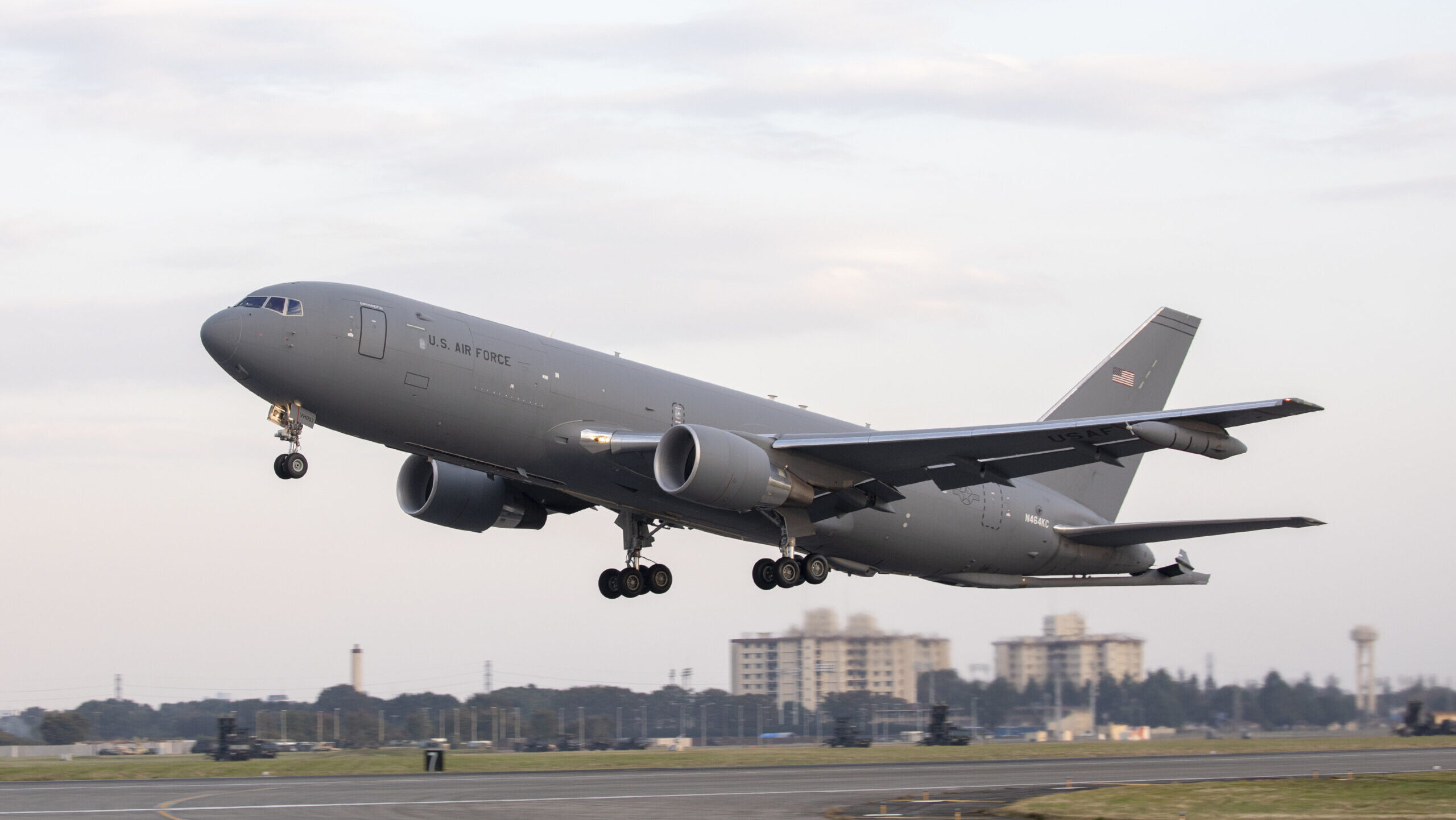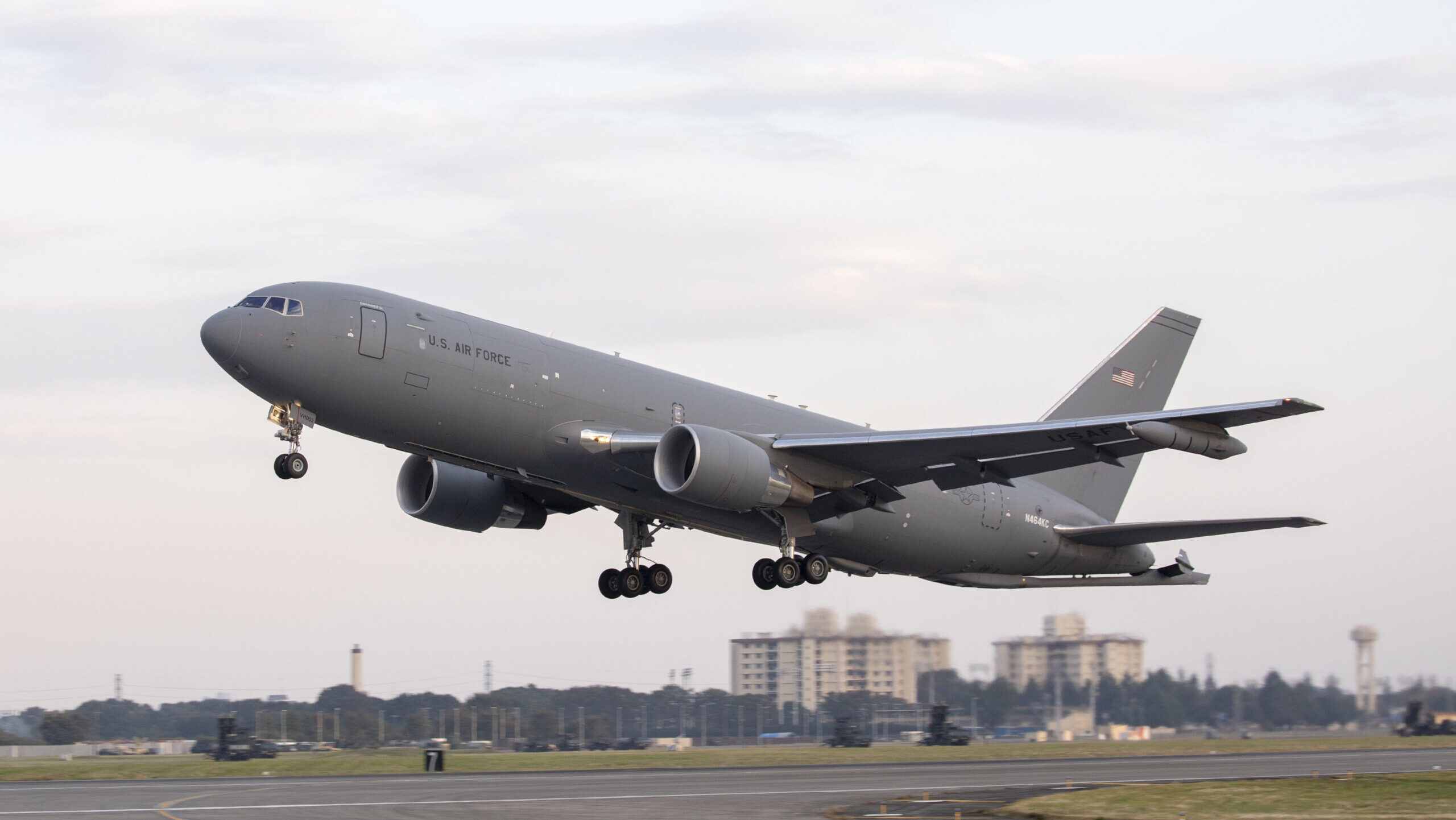
A Boeing KC-46A Pegasus takes off at Yokota Air Base, Japan, Oct. 25, 2018, during a system evaluation. This is the first time the KC-46A visited Japan. The flight is to support an initial evaluation by the USAF of the KC-46A’s integrated mission system suite as well as its ability to conduct worldwide navigation, communication and operation. (U.S. Air Force photo by Yasuo Osakabe)
WASHINGTON — Boeing expects to log a $1.7 billion loss across several defense programs when it announces its fourth quarter 2024 results next Tuesday, the company said, meaning the company will have incurred almost $5 billion in losses on defense programs for the full year.
Boeing’s total year end charges of $4.9 billion on its troubled portfolio of fixed price weapons contracts is the largest-ever loss for its defense unit, up from losses of $4.4 billion in 2022, according to figures from Boeing financial disclosures compiled by Breaking Defense.
The newly revealed fourth quarter charges include a $800 million loss on the KC-46 tanker, reflecting what the company said were higher-than-estimated manufacturing costs. Boeing attributed part of that loss to the September strike of its Seattle-area machinist union, which resulted in a seven week production halt on jetliners such as twin-aisled 767 from which the KC-46 is derived.
It also included a $500 billion loss on the T-7 Red Hawk trainer programs due to higher estimated production costs starting in 2026, Boeing said in a statement.
EXCLUSIVE: Air Force reworking approach for T-7A Red Hawk, delaying production by 1 year
The company will also record losses on the Air Force One replacement program known as VC-25B, the Navy’s MQ-25 tanker drone and NASA’s Starliner, Boeing said, although it did not provide exact figures for those programs.
“Although we face near-term challenges, we took important steps to stabilize our business during the quarter including reaching an agreement with our IAM [International Association of Machinists and Aerospace Workers]-represented teammates and conducting a successful capital raise to improve our balance sheet,” said Boeing CEO Kelly Ortberg. “We also restarted 737, 767 and 777/777X production and our team remains focused on the hard work ahead to build a new future for Boeing.”
RELATED: Boeing’s defense unit logs massive $2 billion in losses for third quarter
Fixed price contracts, which hold the company responsible for covering all costs over a certain threshold, have long been the bane of Boeing’s defense unit, which has seen costs of programs like the KC-46 and MQ-25 skyrocket due to supply chain problems, the COVID-19 pandemic, inflation and labor issues. Boeing executives have repeatedly stated that the company will no longer bid on development contracts that use a fixed-price structure.
Altogether, Boeing’s defense unit is set to report revenue of $5.4 billion for the quarter, as well as an operating margin of negative 42 percent, Boeing said.
Earlier this month, the Air Force announced it had delayed Milestone C for the T-7 by a year and that it would allocate additional funds toward incentive agreements with Boeing to address issues that were not originally envisioned when the plane’s fixed-price development contract was negotiated.
In September, Boeing announced the departure of Ted Colbert, who has led its defense unit since 2022. The planemaker has not announced a full-time successor, with Steve Parker, the defense division’s chief operating officer, taking on the acting CEO role.










